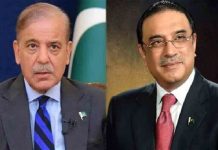-
– Approves establishment of Construction and Infrastructure Board
-
– Directs for transparency in survey process of Ehsaas programme
Staff Report
ISLAMABAD: Prime Minister Imran Khan Wednesday lamented the silence of the powerful countries over the Indian unabated siege of Indian Occupied Jammu and Kashmir (IOJ&K) because of their trading interests.
The prime minister on his twitter account posted that situation in IOJ&K, showed the fascist mindset of the Indian government’s RSS (Rashtriya Swayamsevak Sangh) ideology. He said the siege of IOJ&K continued for over 100 days in which the Kashmiris had been subjected to the worst kind of human rights violations.
“Shows the fascist mindset of the Indian govt’s RSS ideology that has continued the siege of IOJK for over 100 days, subjecting Kashmiris to the worst violation of their human rights while the powerful countries remain silent bec (because) of their trading interests,” he posted.
The prime minister also tagged a story appearing on the Middle East Eye website, an independent online news organization, titled “India consul general in United States calls for ‘Israeli model’ in Kashmir.”
According to the contents of the story, during a private event few days back in New York city, Sandeep Chakravorty, India’s consul-general, told Kashmiri Hindus and Indian nationals that India would build settlements modeled after Israel for the return of the Hindu population to Occupied Kashmir.
Speaking to Kashmiri Hindus, known as Pandits, Chakravorty asked those present to give the government some time to implement its plans in the occupied valley.
It is also the latest incarnation of the Indian government’s goals of a settler-colonial policy for the occupied valley, which Kashmiri academics and scholars have long warned is the ultimate ambitions of the Indian state. The piece of writing said Israeli-India relations had intensified since the election of Narendra Modi in 2014. “India is Israel’s biggest purchaser of arms, amounting to $1bn per year. Both India and Israel have used the specter of Islamic ‘terror’ to justify their security policies and the need for partnership.”
“On August 5, the Indian government placed more than seven million people under a communication blackout, going on to illegally abrogate Article 370, effectively ending Kashmir’s semi-autonomous status.
“India’s actions has drawn condemnation from US lawmakers, human rights groups as well as prompted two US Congressional hearings, in which there was a call for foreign delegations and foreign journalists to be allowed into the valley. Thus far, only a far-right European delegation has been allowed in while foreign journalists have not been allowed to enter the valley since August 5,” the story said.
It said since, the start of indigenous struggle for the determination of self-determination in the late 1980s, more than 70,000 Kashmiri Muslims had been martyred, while an estimated 7,000 others have “disappeared”. In early August, India sent tens of thousands of additional troops to IOJ&K.
There are more than 700,000 Indian troops in the occupied valley, in what is described as the most militarized region on earth.
Meanwhile, Prime Minister Imran Khan Wednesday approved, in principle, the establishment of Construction and Infrastructure Board which would be instrumental in addressing the issues being faced by the constructors. The prime minister also directed secretary planning to formulate a construction development policy for facilitating all stakeholders including contractors, clients and consultants. A delegation of Construction Association of Pakistan, headed by Eng. Arshad Dad Khan, called on the prime minister at the PM Office. Minister for Planning Asad Umar was also present during the meeting, PM Office media wing in a press release said.
The prime minister observed that the present government was focusing on employing technology and making the processes digital so as to reduce human interface, eliminate corruption and ensure transparency in all business activities.
The delegation included Asad Ullah Khan, eng. Kamal Nasir, Ayub Sheikh, eng. Attah Ullah Khan, Aftab Siddiqui, Ch. Habib Kanwal, Yaqoob Izhar and Ikram Ch. The delegation appreciated the vision of the prime minister in approving the construction sector as ‘industry’ and the steps being taken by the present government towards meeting the existing demand for low-cost housing in the country. While briefing the prime minister about the issues being faced by the constructors, the delegation proposed various steps to address these issues. These included establishment of construction and infrastructure board, setting up of office of procurement ombudsman, capacity building of local construction industry, revisiting tax regime, review of laws and audit procedures and lack of standardization etc.
The prime minister welcomed the suggestions and observed that the present government was committed to provide an enabling environment to the construction industry.



